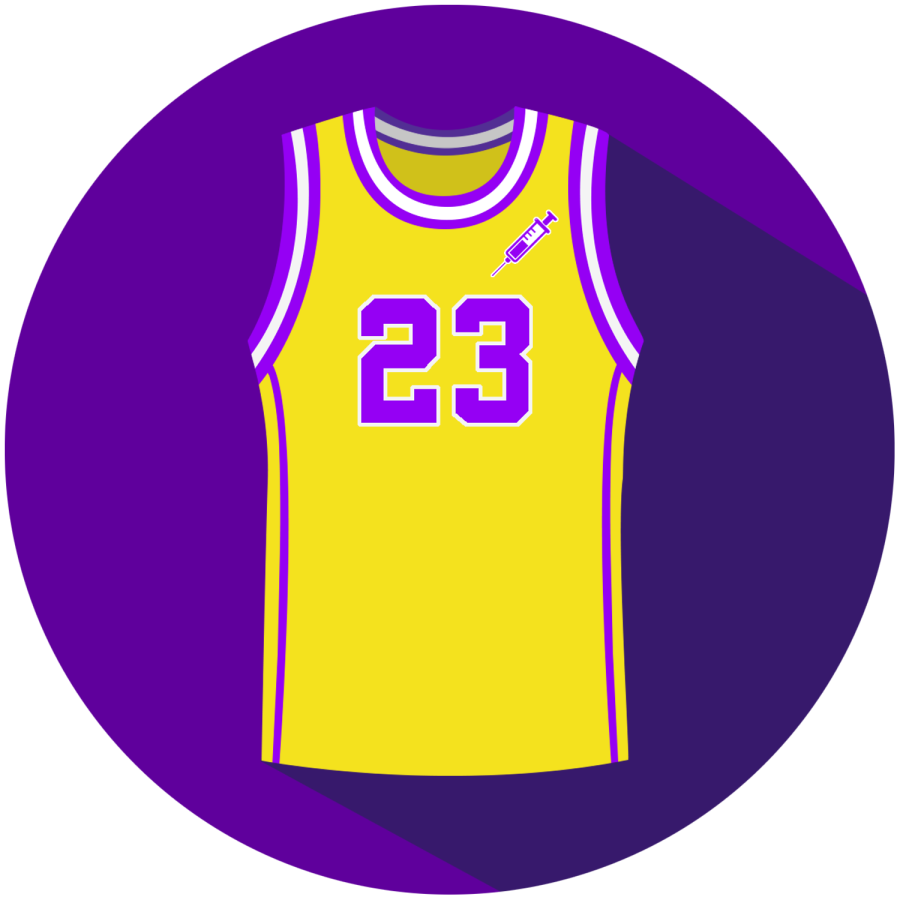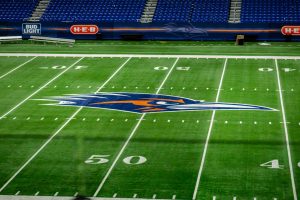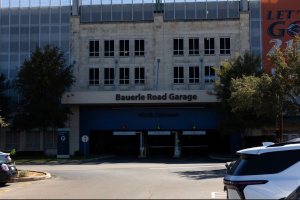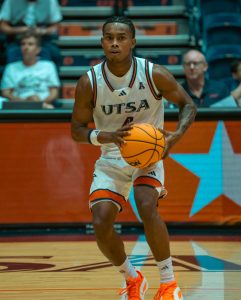It’s time for athletes to play lockdown defense on misinformation
Just as it has with pretty much every other aspect of society today, the debate around vaccinations has infiltrated the sports world. Caleb Preston/The Paisano
October 12, 2021
From Sooner to Longhorn, everyone has the sports hill they will die on. In the same way, many individuals have strong opinions about the COVID-19 vaccine. The question is, should athletes share their opinions on the vaccine, or is it not a relevant issue since the vaccine has nothing to do with their athletic career? The thing is, getting the COVID-19 vaccine has everything to do with their career.
For many sports fans, especially children, athletes become role models, and they shoulder the responsibility of being a good one. It is their duty to spread information and talk about the importance of getting the vaccine because they could very well change someone’s mind about getting it. Sharing their opinion could change things for everyone. Not only that, but avoiding the vaccine can result in major consequences on and off the court. According to the league, 90% of NBA players are vaccinated, but, as of recently, prominent players such as the Brooklyn Nets’ Kyrie Irving, the Washington Wizards’ Bradley Beal and the Golden State Warriors’ Andrew Wiggins have made uninformed and controversial statements about their status and opinion on the vaccine.
Irving has refused to get the COVID-19 vaccine, and it is taking a toll on his career. He has been unable to attend any practices and stands to miss around 43 games — 41 home games and two additional games at Madison Square Garden facing off against the Knicks — all because of his refusal to get the vaccine. Not only that, but he is putting thousands of lives at risk. Irving’s apathy toward receiving the vaccine reflects poorly on his basketball team and his inactivity jeopardizes his prominence in the NBA. At a time when players are becoming more vocal about their “political” beliefs, Irving’s actions speak volumes.
To explain further, Irving’s statements are even consequential beyond his team. During the pandemic, the NBA has shown strong leadership on its stance on preventing the transmission of COVID-19 and battling the pandemic, but when its most promising players refuse to get vaccinated, it creates doubt focused on the league’s leadership capabilities rather than the players themselves. Thus, for players to refuse vaccination reveals selfish intentions with little regard for the widespread ramifications. Basketball’s biggest names seem to feel obligated to protect players that refuse to get vaccinated. For instance, Lebron James revealed that he was fully vaccinated and stated he did so to protect himself and others. However, James also mentioned “it is not my job” to persuade players to get vaccinated. In this instance it appears that James, because of his vaccination status, is making up for other players’ shortcomings and combat reluctance and misinformation, even though perhaps it is out of his depth.
Therefore, players should be more inclined to promote and receive their vaccination because they serve as a role model for thousands; would be falling in line with the league’s leadership; and more plainly, just doing the right thing.
Don’t agree with this article? Send your counter-opinion to [email protected]







